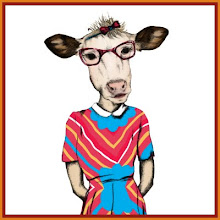An American organization of university librarians called LibLicense recently released a new draft of their Model License Agreement for libraries licensing digital materials. One of the goals expressed for this Model License is that it could serve as a template for license negotiations for institutions around the world. This Little Leo, generally a bit skeptical of wholesale exporting of US ideas, took a look at the model license with an eye as how it could work in African jurisdictions.
The really interesting thing about this license is that it was not drafted by attorneys. That comes across in the language that is chosen and the types of things that are licensed. For example, the first Grant of License is a license to access and use the materials. What is use? What uses are licensed? How would a court in, say Kenya, interpret that term in a dispute about whether the licensee breached the contract? “Use” is not a right granted in the Kenyan Copyright Act (at least not that this Little Leo can find).
Another area that brings up some definite this-was-not-drafted-by-a-lawyer concerns is the licensing of “rights” that aren’t actually rights, the Licensor telling the Licensee, “you have our permission to do x” when x doesn’t require permission under copyright law. For example, the text licenses hyperlinks, quotes and citations. In the US, this a huge concern for lawyers (and pundits) concerned about copyright over-reaching. It’s sort of the domestic law equivalent of TRIPS+ treaties. If licensing these “rights” becomes standard in contracts, do these non-rights morph into rights? Is the balance of power between author and creator presumably set up in (at least the economic-rights based concept of) copyright law shifted? These are the concerns raised in the US.
Are there similar concerns in any African countries? In the US, a big part of this concerned encroachment is on what can fall under fair use. As far as this Little Leo is aware, Uganda is the only African country to have a similar fair use – it matches the US’s pretty much exactly – and it doesn’t have the same historical weight.
Some provisions in the model license are excellent for the situations in which African libraries may find themselves wanting to use digital resources. For example, provision 3.1 defines Authorized Users of the licensed material to include all students, full or part time regardless of their physical location. For a continent with a strong emphasis on distance learning, this is a great inclusion.
The license also includes provisions to allow archiving resources, continuing to use resources after a subscription ends and bailing out of the agreement when the institution can no longer afford the subscription. For cash-strapped institutions, these could all be huge in maintaining access to knowledge. Though whether a Licensor would go along with them is another matter.
The full draft license text is available here, for anyone who wants to take a look. Comments to LibLicense can be left until Thursday. Comments to Afro-Leo, especially to the questions above, can be left below.







